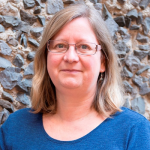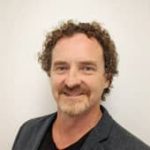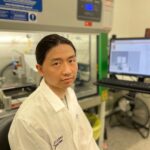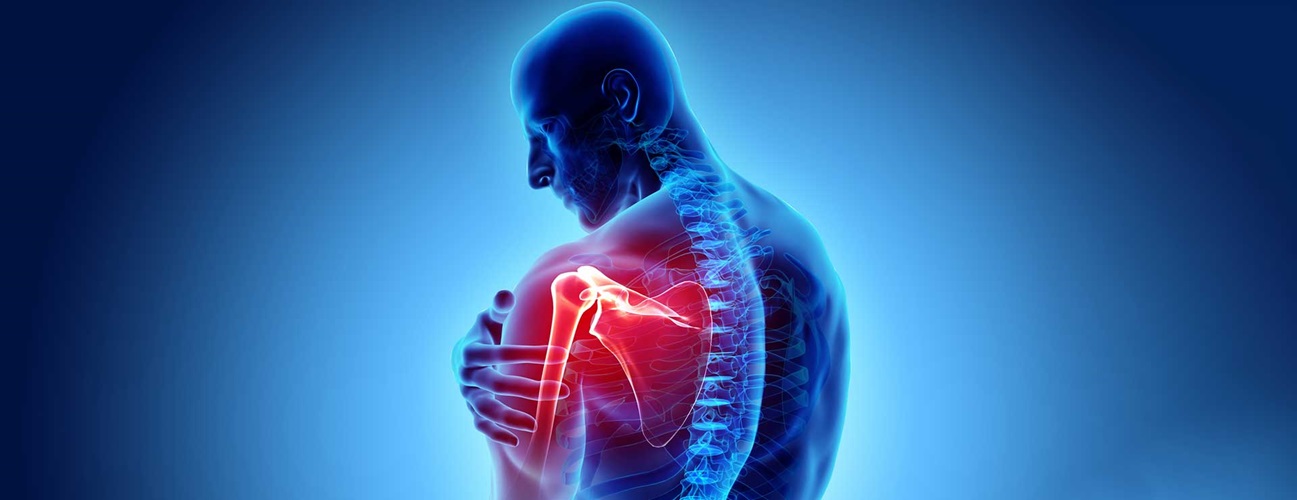Program 3
Optimised Tissue-Engineered Scaffolds
This program will utilise the multiscale computational models and simulation outputs and detailed characterisation and mapping of shoulder joint biomechanics to inform the design, development, optimisation and validation of engineered scaffolds for rotator cuff repair. The integration of underlying biochemical and biomechanical cues associated with de novo tissue generation within the shoulder joint into bespoke designed, biomechanically-matched, engineered scaffolds will significantly improve upon the current empirical process applied to developing tissue scaffolds for interfacial musculoskeletal tissues (such as the rotator cuff). Thiswill further inform how tissue generation in these scaffolds can be enhanced through fit-for-purpose rehabilitation post-surgery to encourage functional tissue repair and improve patient outcomes.

Prof Lisbeth Grondahl
School of Chemistry and Molecular Biosciences UQ Faculty of Science
Program Participants

Investigator
Prof Justin Cooper-White
Read Bio
Justin is the Head of the School of Chemical Engineering at The University of Queensland (UQ) and Professor of Bioengineering in the UQ School of Chemical Engineering. He is Senior Group Leader in the Australian Institute for Bioengineering and Nanotechnology (UQ), Director of the Australian National Fabrication Facility – Queensland Node (ANFF-Q), Co-Director of the UQ Centre in Stem Cell Ageing and Regenerative Engineering (UQ-StemCARE), Chief Scientific Officer of Scaled Biolabs Inc., a lab-on-a chip start-up based in San Francisco, and Editor-in-Chief of APL Bioengineering, published by American Institute of Physics Publishing (New York). Justin’s research interests are in biomaterials, cell therapy, tissue engineering and regenerative medicine. He has over 200 journal papers, published in high impact journals in these fields. He has produced six Worldwide patent families that have reached National Phase Entry in USA, Europe, and Australia in the areas of formulation design for agriproducts, microbioreactor arrays and tissue engineering scaffolds.

PHD STUDENT
Asawari Parulekar
Read Bio
“Exploring the role of mechanotransduction in producing inferior surgical outcomes for aged patients with Rotator Cuff Tears (RCTs)”.
Asawari is currently undertaking her PhD with ARCITTC-JB at UQ. She entered the fields of biomechanics & regenerative medicine as a research assistant during her time as an undergraduate Chemical and Biological Engineer. Her current research in interfacial tissue engineering investigates the complexities of attaching mechanically mismatched, soft (tendon) and hard tissues (bone) from a cell biological lens. Her project focuses on understanding the mechanisms by which cells respond to mechanical cues in the context of ageing tissues within the human shoulder.

Phd Student
Sepideh Shemshad
Read Bio
Sepideh is currently undertaking her PhD with ARCITTC-JB at UQ. Her project aims to develop a delivery platform for controlled release of biochemical signals for rotator cuff tissue regeneration. Sepideh completed her Master of Science at Iran University of science and Technology in Biomaterial Engineering, where her research was focused on Fabrication and Characterization of Scaffolds for bone tissue engineering.
Moreover, she worked as a Research Assistant at Sabanci University in Turkey, where she focused on fabrication of polymeric nanofibers and nanotubes for sustained and targeted drug delivery.

PhD Student
Stephanie Belen Michelena Tupiza
Read Bio
Development of multicomponent, multimodal scaffolds for enhanced rotator cuff repair
Stephanie joins the centre in support of Program 3: Engineered Tissue Scaffolds. After previously completing her masters at the University of Queensland (UQ), she returns to pursue her passion in bioengineering and anatomy.

POST-DOC FELLOW
Dr Eleonore Bolle
Read Bio
Eleonore Bolle is a mechanical engineer by education with added expertise in tissue culture. She is currently a postdoctoral researcher in the School of Chemical Engineering at the University of Queensland. Prior to joining the University of Queensland she undertook a Ph.D. in Tissue Engineering at the Queensland University of Technology. Her research interests lie in additive manufacturing techniques, biomaterials, drug delivery and the development of 3-dimensional tissue models. Specifically, her current research focusses on using novel biomaterials and additive manufacturing techniques to restore and maintain tendon function.

POST-DOC FELLOW
Dr Guanyu Lai
Read Bio
Guanyu Lai obtained his PhD in Materials Science and Engineering from Monash University in 2023, with a specialisation in hydrogel-based polymeric biomaterials for 3D bioprinting of biomimetic constructs. His research focuses on developing mechanically and rheologically tuneable polymeric materials that can form complex structures, with applications in tissue engineering and regenerative medicine. His work aims to bridge the gap between material science and biomedical engineering for improved healthcare solutions.

